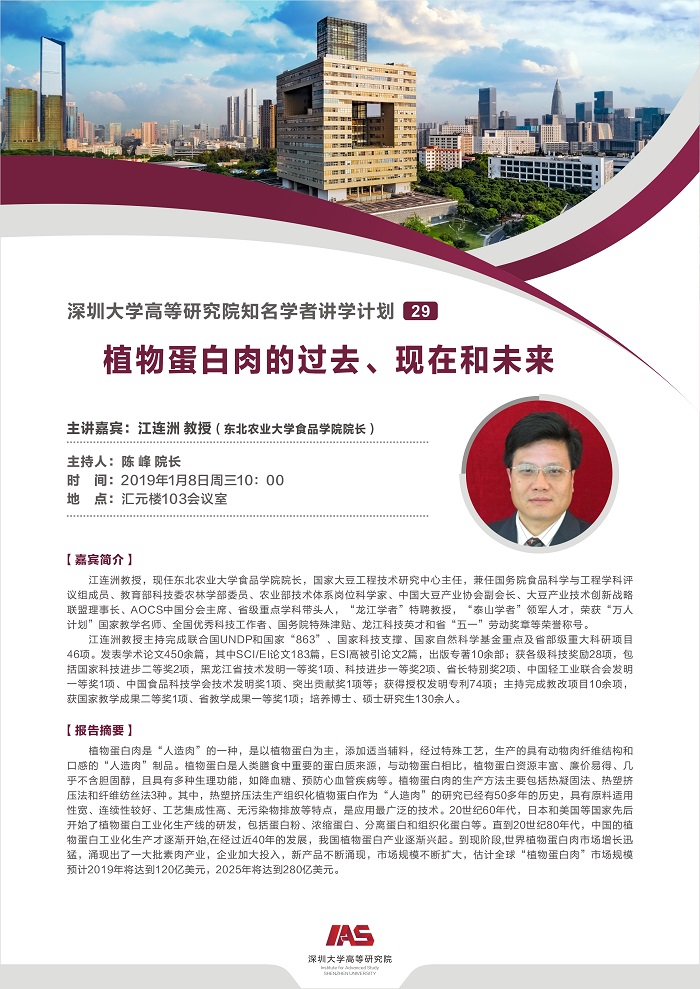Topic: The Past, Present, and Future of Plant-based Meat
Speaker: Professor Lianzhou Jiang, the Dean of Food Science College of Northeast Agricultural University
Host: Professor Feng Chen, the Dean of IAS
Date: 10:00 a.m. on January 8, 2019 (Wednesday)
Venue: 103 Meeting Room in Huiyuan Building
Report Abstract:
Plant-based Artificial Meat is made using plant proteins as the main content, supplemented with respective auxiliary ingredients, and treated through selected processing to yield animal tissue-like texture and taste. Plants are an important source of proteins in the human diet. Comparing to the animal proteins, that of plants is abundant, economical and cholesterol-free. Therefore, suitable for people with concerns over diabetes and cardiovascular diseases. The main processing techniques to produce plant-based meat including heat coagulation, thermoplastic extrusion, and fiber spinning. Among which the application of thermoplastic extrusion for Artificial Meat production has been studied for over 50 years; it is compatible with a wide range of ingredients, suitable for continuous production, adaptable for process integration and does not produce waste. As a result, thermoplastic extrusion processing is the most widely used technique for plant-based meat production. In the 1960s, Japan and the United States began to do research and develop the industrial production line of vegetable protein, including protein powder, concentrated protein, isolated protein, and organized protein. China did not have the industrial production line of vegetable protein until the 1980s, and China's plant protein industry gradually developed during the following 40 years. Currently, the market of plant-based meat over the world has grown rapidly, and a large number of vegetarian meat industries have emerged. Enterprises have increased their investments and new products have emerged continually. The market has expanded a lot and it is said that the market size of plant-based meat over the world will reach $12 billion and may reach $28 billion in 2025.
Speaker Introduction:
Professor Lianzhou Jiang is
the Dean of Food Science College of Northeast Agricultural University
the Director of the National Research Center of Soybean Technology
the member of the food science & engineering discipline’s evaluation group in the State Council
the member of the Agriculture and Forestry Department of the Science and Technology Committee of the Ministry of Education
the scientist of the technology system of the Ministry of Agriculture
the vice president of China Soybean Industry Association
the head of AOCS China branch
the leader of key disciplines at a provincial level
the distinguished professors of Longjiang Scholars Project



